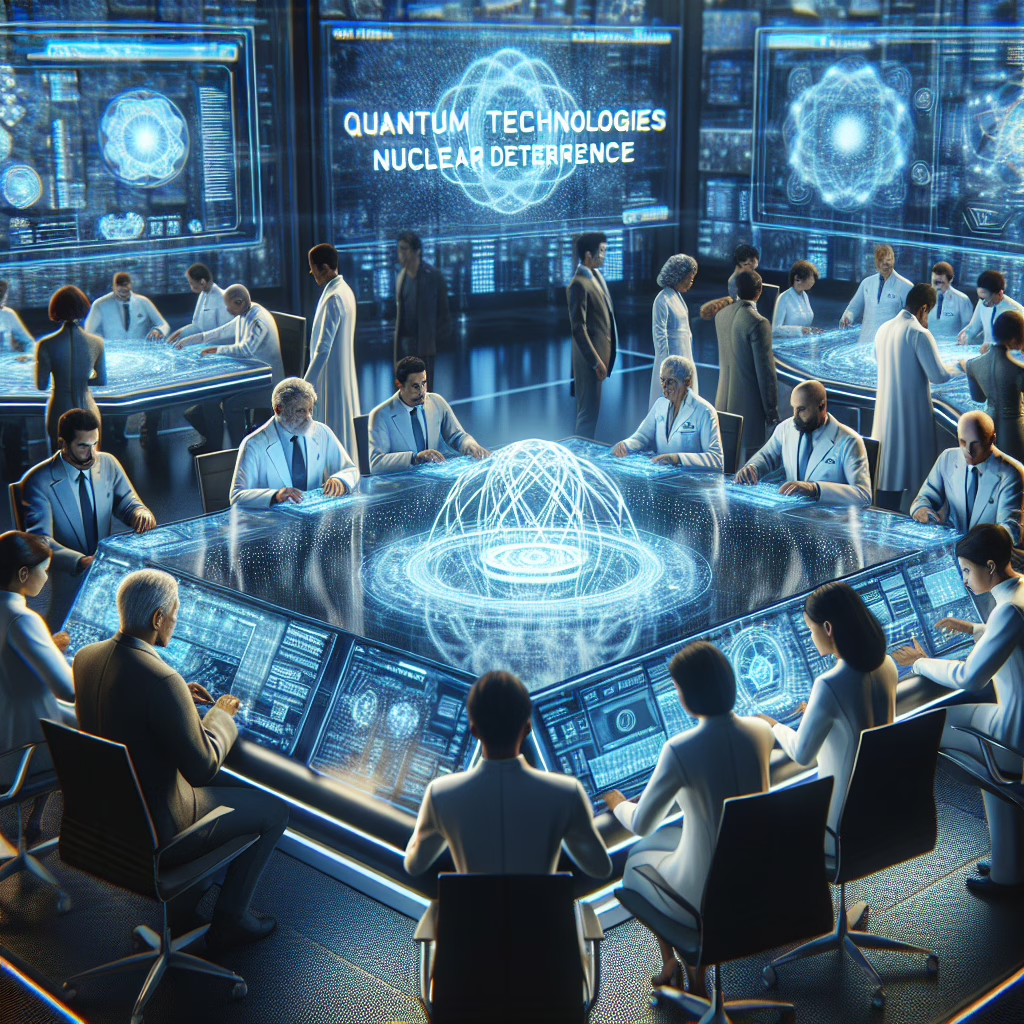In the ever-evolving world of global security, two titans stand at a crossroads: quantum technologies and nuclear deterrence. As we march through 2025, the implications of these advanced technologies on our nuclear strategies are both profound and a bit mind-boggling. So, grab your favorite beverage, sit back, and let’s dive into this fascinating mix of science fiction and reality!
The Quantum Leap: What Does It Mean for Nuclear Deterrence?
First, let’s break down what quantum technologies really entail. At its core, quantum technology harnesses the peculiar properties of quantum mechanics—yes, the same stuff that makes your physics teacher’s eyes light up with excitement. From quantum computing to quantum cryptography, these technologies promise to reshape everything from communication to computation. But how does this relate to our good old friend nuclear deterrence?
Nuclear deterrence has been a cornerstone of international relations since the Cold War. The theory is simple: if you threaten to unleash a catastrophic force, your adversaries might think twice before provoking you. Enter quantum technology! This innovative field introduces both opportunities and challenges that could potentially shake up the nuclear status quo.
In essence, quantum technologies could redefine the landscape of nuclear strategies. They not only change how nations secure their arsenals but also how they communicate about them on the global stage.
Unraveling the Mysteries: Quantum Computing’s Role
Let’s talk about quantum computing for a moment. Imagine a computer that can process information at lightning speed—so fast that it makes traditional computers look like they’re stuck in molasses. This power can enable countries to simulate nuclear strategies with unprecedented accuracy. Think of it as playing chess against a grandmaster who can see all possible moves—forever.
However, with great power comes great responsibility (and a few headaches). If one country gains access to advanced quantum computing capabilities first, it could tip the balance of power in ways we can only begin to fathom. This leads us to an interesting dilemma: will nations rush to develop their own quantum capabilities, or will they step back and try to establish some form of cooperation? Spoiler alert: history suggests they’ll probably rush in like kids at a candy store!
Quantum Cryptography: Keeping Secrets Safe
Now let’s sprinkle some intrigue into our discussion with quantum cryptography. This technology aims to make communication virtually unhackable by using the principles of quantum mechanics. In a world where nuclear secrets are more valuable than gold, ensuring that sensitive information remains confidential is crucial.
If countries successfully implement quantum cryptography, they could secure their nuclear command and control systems from prying eyes. Just imagine the peace of mind for leaders knowing their launch codes are protected by the laws of physics rather than just firewalls and passwords! However, this also raises questions about trust: if one nation employs quantum encryption while others lag behind, how do we ensure everyone is playing fair?
The Paradox of Deterrence in a Quantum Age
Here’s where it gets really interesting—the paradox of deterrence in a world influenced by quantum technologies. As nations adopt these new capabilities, they may feel emboldened to act more aggressively, believing they hold an advantage over others. Yet this aggressive posture could provoke anxiety among other nations, leading them to ramp up their own nuclear arsenals. It’s like a high-stakes game of poker where everyone keeps raising the stakes until someone goes bust!
This arms race dynamic could become even more complicated with rapid advancements in technology. For example, autonomous weapons powered by AI and enhanced by quantum capabilities might blur the lines between human decision-making and machine logic. Picture a scenario where an algorithm decides it’s time for a preemptive strike—yikes!
The Global Response: Collaboration or Competition?
The real question now is whether nations will approach these developments collaboratively or competitively. On one hand, international dialogue around quantum technologies could foster trust and transparency—a dream scenario for global peace advocates! On the other hand, we might witness an all-out scramble as countries vie for dominance in this brave new world.
In essence, understanding nuclear deterrence in light of quantum advancements requires all stakeholders to communicate openly and work together towards mutual security goals. After all, nobody wants to accidentally trigger World War III because someone misinterpreted an algorithmic message!
The Future Awaits!
The intersection of quantum technologies and nuclear deterrence presents both challenges and opportunities that could shape our future in unimaginable ways. As we navigate this complex landscape in 2025, staying informed about these developments is essential for citizens and policymakers alike.
So what do you think? Will we rise to meet these challenges with innovation and cooperation? Or are we destined for a rocky road ahead? We’d love to hear your thoughts—don’t hesitate to share your insights in the comments below!
A special thanks to Modern Diplomacy for providing such informative content on this crucial topic!
For more information on technological impacts, check out our recent posts on July 2025 Pixel update insights and Five new Google Photos features.

